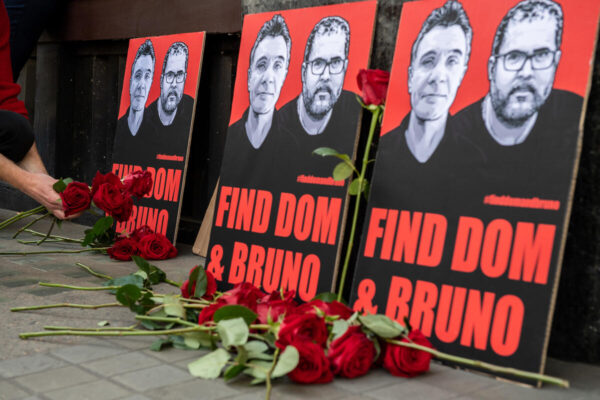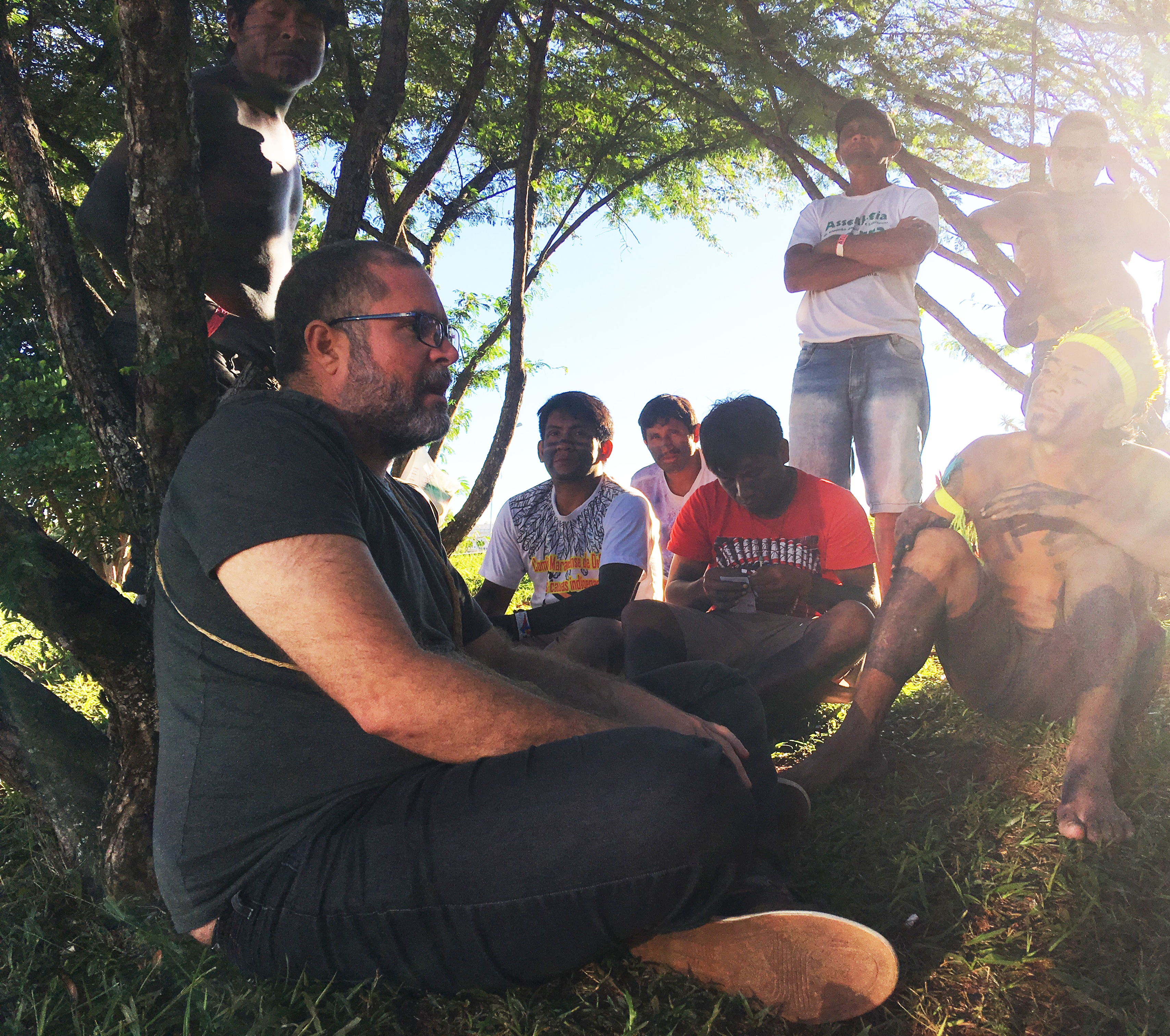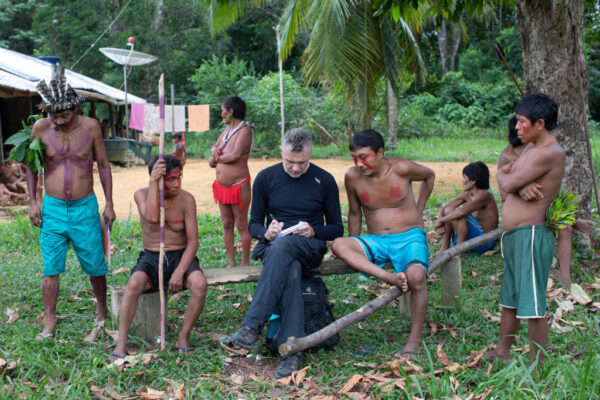Jair Bolsonaro’s dog-whistle politics is risking the lives of Indigenous people and the reporters who tell their stories

It’s now more than four days since veteran Brazil correspondent Dom Phillips and Indigenous expert Bruno Pereira disappeared in the Javari Valley, a remote part of the Western Amazon thought to have the world’s highest concentration of uncontacted people. Bruno, a long-time defender of Indigenous rights who formerly worked for Funai, Brazil’s government Indigenous rights agency, had reportedly received threats for his work monitoring illegal activities in the region.
Dom and Bruno were last seen early Sunday while travelling in a boat on the Itaquaí River in the northern Brazilian state of Amazonas, near the border with Peru. Itaquaí is a remote, lawless, and strategically important area for illegal trafficking, fishing and mining. It is home to a growing presence of armed gangs. Diplomats, NGOs and media organisations are now calling on the Brazilian government to rapidly expand and accelerate their search and rescue mission.
The official response has been woefully inadequate. The army initially said it would only launch a rescue mission once given orders from a higher command, wasting the precious hours immediately after Dom and Bruno disappeared. It took three days to deploy a helicopter to the region.

Indigenous groups that have been searching on the ground since Sunday released a statement saying they had repeatedly called on multiple federal agencies for help. Yet with the exception of 6 military police officers and a team from Funai, federal agencies and armed forces have been “absent from the effort”, they said. As the Indigenous leader Sonia Guajajara put it when she recently asked US Climate Envoy John Kerry personally to intervene: “The search is so slow, and it is pitiful that we continue to live in a situation where there is no security.”
There is no risk assessment in the world that can mitigate against three years of dangerous propaganda coming from the very top of government.
Many of us reporters here in Brazil know Dom personally. He’s been here for some 15 years, a dogged, sharp-eyed journalist and an incredibly kind man. He is never too busy to help out a fellow reporter, a generosity that shapes his work: he covers under-reported stories because he cares deeply about giving a voice to Brazil’s marginalised groups. He takes on risky assignments because he believes the stories he tells matter that much. As his wife Alessandra puts it, “I want you to know that Dom Phillips, my husband, loves Brazil and he loves the Amazon. He could have chosen to live anywhere in the world but he chose here.”
Of course, we don’t yet know exactly what has happened here. But for those of us who have been following Brazil’s grim political reality for the past three years, we’re not just sad, worried, fearful. We’re also incandescent with rage. As time passes, foul play becomes an even more likely explanation. This is it, we want to scream. This is the logical consequence of three years of encouraging violence against Indigenous people and journalists.

Under Bolsonaro, attacks on the press have increased. The Brazilian president peppers his speeches with anti-Indigenous, anti-conservation dog whistles. Bolsonaro has consistently presented environmental protections and Indigenous rights as mere impediments to economic development; nuisances that stand in the way of a more muscular, industrial Brazil. Many appear to have taken him at his word. Invasions and violence against Indigenous people have increased and deforestation has soared under his presidency. In 2019, farmers in Pará set the forest on fire to show Bolsonaro they got the message, and approved of it.
And it hasn’t only been words. The Bolsonaro administration has made multiple attempts to bolster these grudges in law. Several bills are currently being processed in the Brazilian Congress that, directly or indirectly, threaten Brazilian Indigenous Lands either by opening them up to economic interests such as mining or by curtailing Indigenous peoples’ rights to their land in the first place. The message all this has sent has been clearly received: do what you like to Indigenous people because there’ll be no repercussions. Invade their land, cut down their trees, contaminate their rivers. Even kill them, if that’s what it takes.
How do we continue asking other reporters to take on these risks? What message does it send when people like Dom and Bruno vanish, only to be met with a pitiful official response? There is no risk assessment in the world that can mitigate against three years of dangerous propaganda coming from the very top of government.
Bolsonaro’s response, when asked about the disappearance, was callous and dismissive. He appeared to blame Dom and Bruno. They shouldn’t have been there, he said, on an “adventure”. Anything could happen. But as many of Dom’s and Bruno’s colleagues have pointed out on social media, reporting in the field isn’t an adventure. Advocating for Indigenous rights isn’t an adventure. It’s a public service. It’s a moral imperative. One which this government has made all the more necessary, and all the more dangerous. And that’s why advocates and reporters – brave, kind people like Dom and Bruno – will keep on taking these risks. And why we must keep holding the government to account.


The disappearance of Dom Phillips and Bruno Pereira in Brazil should leave you incandescent with rage
Lucy Jordan